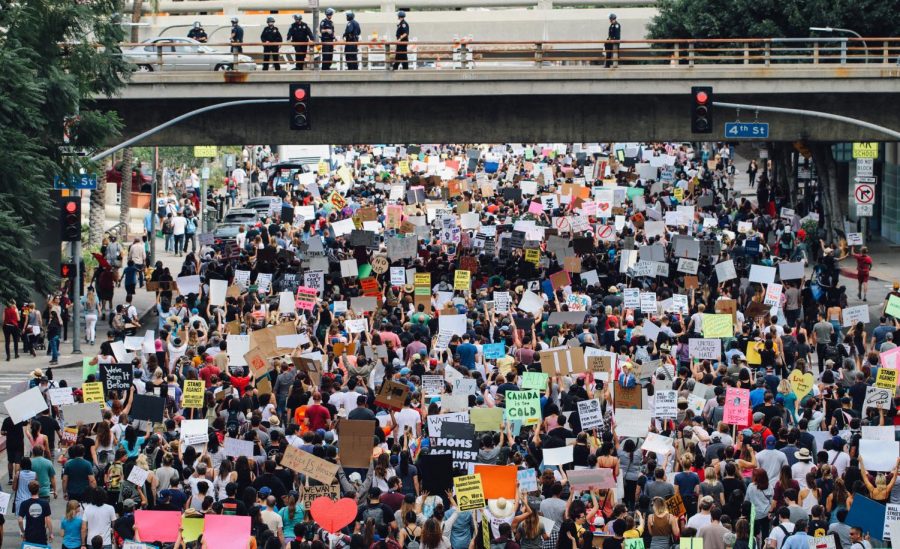“Congress shall make no law respecting an establishment of religion, or prohibiting the free exercise thereof; or abridging the freedom of speech, or the press; or the right of the people peaceably to assemble, and to petition the Government for a redress of grievances.” This is the first, and arguably the most important, amendment of the Constitution.
Free speech has been vital to the history of the United States. As an example, for a long period of time, women were treated as inferior to men. They could not vote, fight in the military, or get a decent education. It was not until the 1840s and 50s that the fight for women’s rights started to gain momentum. Protesting was the main means of spreading the message of equality across the world, so they simply could not have done this without freedom of speech. Another example would be the Civil Rights Movement. This was when African Americans came together and protested for equal rights during the time of Jim Crow Laws, which essentially made racism legal. Even now, there are many rallies, marches, and protests going on, perhaps more than ever before: climate strikes, Black Lives Matter protests, March For Our Lives protests, etc.
At the same time, freedom of speech is being challenged. There are a number of reasons for this, but I’ll just mention two. The first is political correctness, described by Oxford Reference as “the avoidance of forms of expression or action that are perceived to exclude, marginalize, or insult groups of people who are socially disadvantaged or discriminated against.” Political correctness is generally a well intended thing, though a nationally representative poll found that 80% of Americans find the concept of political correctness uncomfortable. Our own president, too, has made it clear that he is no fan of political correctness. When Twitter started fact-checking posts, for instance, President Trump signed an executive order regarding the removal of some of the legal protections given to social media sites. He claimed it was in the name of free speech, but I presume it had something to do with his damaged ego as well. This president also exercises his free speech by making comments such as “When the looting starts, the shooting starts.”
Most people do not realize that free speech has not covered all types of speech since 1942, when the “Fighting Words Doctrine” was created by the Supreme Court in Chaplinsky v. New Hampshire. According to the court, fighting words are words that “by their very utterance, inflict injury or intend to incite an immediate breach of the peace.” The court also stated that “fighting words are a category of speech that is unprotected by the First Amendment.”
The second, related challenge to free speech is cancel culture, defined by Dictonary.com as the “popular practice of withdrawing support for (canceling) public figures and companies after they have done or said something considered objectionable or offensive.” Similar to political correctness, cancel culture is not automatically bad; it is only when accusations are not good enough that cancel culture becomes questionable. In fact, a couple of months ago, an anti-cancel culture letter signed by many prominent figures such as J.K. Rowling and Malcolm Gladwell was published in Harper’s Magazine. The author of the article, Thomas Chatterton Williams, wrote, “The forces of illiberalism are gaining strength throughout the world and have a powerful ally in Donald Trump. But resistance must not be allowed to harden into its own brand of dogma and coercion—which right-wing demagogues are already exploiting. The democratic inclusion we want can be achieved only if we speak out against the intolerant climate that has set in on all sides.”
In any case, freedom of speech is surely vital to our nation’s future, but so is becoming a nation of people who respect each other, regardless of identity and perspective.


Ian Watanabe • Oct 28, 2020 at 3:25 pm
This is pretty good. I believe in equality and justice too, but I sometimes find political correctness/cancel culture uncomfortable. However, it’s hard for me to speak out against it, because people simply assume I don’t care about equality. Putting together a just argument against political correctness/cancel culture is a hard thing to do, but you clearly know how to do it.